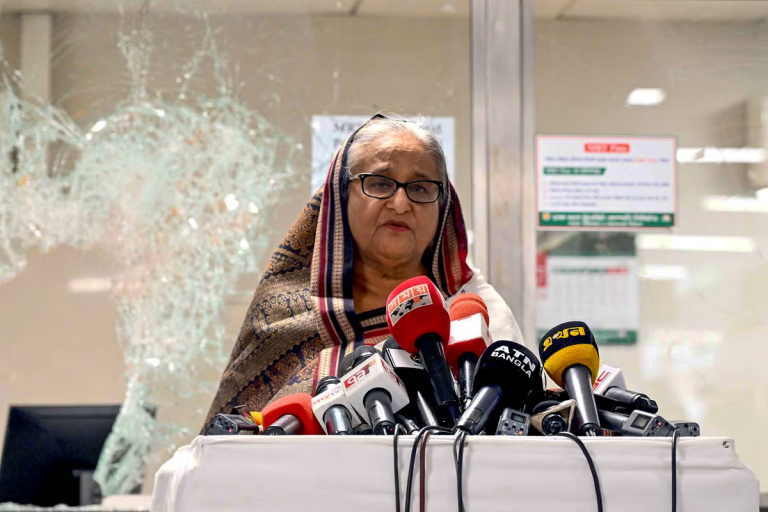
Gopalganj NCP rally turned violent as clashes with ruling party affiliates left 4 dead. British journalist David Bergman demands an independent judicial probe into the incident.

What began as a peaceful rally under the banner of “Desh Gorbo July Podojatra” by the National Citizen Party (NCP) in Gopalganj ended in violence, death, and political controversy. The city turned into a virtual battleground on Wednesday as clashes erupted between NCP activists and groups reportedly affiliated with the ruling Awami League and its banned wings, including the Chhatra League. The aftermath? Four reported deaths, multiple injuries, extensive property damage, and a rising demand for accountability.
Among those demanding answers is British journalist and human rights advocate David Bergman, who called on the interim government of Bangladesh to form an independent judicial probe into the events.
NCP’s rally in Gopalganj was part of their national campaign aimed at engaging citizens in dialogue about democratic reforms and electoral fairness.
However, tensions mounted early in the day as NCP delegations faced repeated attacks allegedly by supporters of the ruling party and its affiliates.
Local sources confirmed that riot police used rubber bullets and live rounds, while demonstrators retaliated with bricks and firebombs.
By afternoon, violence engulfed the city—with running battles in the streets, arson attacks, and violent chases that turned residential areas into flashpoints.
A section 144 order was imposed, and military and BGB personnel were deployed for crowd control.
The most disturbing element of the clash is the confirmed death toll: four individuals lost their lives, though the identities and affiliations of the deceased remain partially unverified.
David Bergman’s voice has long echoed in discussions of state violence, justice, and democratic integrity in Bangladesh. In a Facebook post dated 17 July, Bergman stated:
"I hope Bangladesh's interim government will conduct an independent judicial investigation into the deaths of four people in Gopalganj yesterday. Condemning the Awami League's violence was necessary, but with four people dead in unclear circumstances, an independent inquiry is essential."
Bergman’s demand is more than a symbolic gesture—it reflects growing international concerns about political violence, human rights violations, and lack of transparency during periods of political transition in Bangladesh.
The Gopalganj incident is not just about a single day’s violence. It reflects a deepening crisis of political intolerance, erosion of democratic space, and use of state machinery to suppress opposition activities.
What makes this particular case more sensitive is the location—Gopalganj, the ancestral district of the ruling family.
Allegations that opposition activities are being violently suppressed in this symbolic stronghold underline the high-stakes nature of political control in Bangladesh ahead of any possible national reforms or elections.
While the government has yet to issue an official response to Bergman’s appeal, civil society groups and opposition parties are rallying behind the call for an independent, transparent, and judicially overseen investigation.
Such an inquiry would not only ensure justice for the victims but would also signal to the global community that Bangladesh is committed to democratic norms, even during politically volatile transitions.
If ignored, this incident may further undermine the credibility of the interim government, already under scrutiny for its role in balancing order and openness ahead of future elections.
The deaths of four citizens during a democratic exercise of protest is a national tragedy. Whether these individuals were political activists, bystanders, or state agents, their loss calls for more than condemnation—it demands justice.
In this charged atmosphere, David Bergman’s call for an independent judicial probe is not only timely but essential. As the country treads the path of reform, transparency and accountability must form the foundation of any political process. Anything less would be a betrayal of the very democracy that all sides claim to protect.





